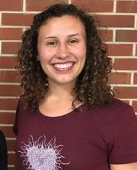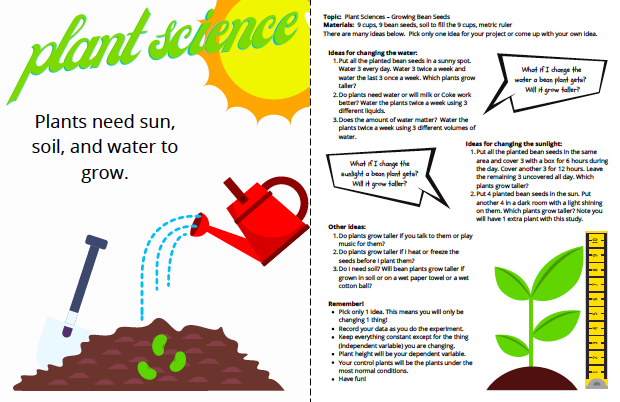Image in header and all images used in story were taken in 2019.

You may have seen cliché pop culture depictions of a science fair: a student sets off a dramatic exploding volcano and is awarded the first-place blue ribbon for their efforts. But how do science fairs play out in the real world? The Positive Feedback Science Mentoring Program, co-founded by SFRC senior Gabi Sullivan, aims to give all students a fair shot at science fair success.

When Gabi was in middle school, she wasn’t particularly passionate about the standardized physical sciences curricula.
“I was much more interested in biology and the natural sciences. Science fair gave me an opportunity to explore the subjects that excited me,” Gabi said.
Gabi’s first science fair experiment involved studying how soil retained moisture, and won her a spot at the regional science fair.
While she didn’t move on to the state fair, the project sparked an interest in science – and a degree of competitiveness.
“I was passionate about presenting my work and I enjoyed meeting everyone else who shared my excitement about science,” said Gabi. “And I wanted to take it to the next level.”
Gabi went on to compete in science fairs for four more years, even reaching international-level competitions hosted in Los Angeles and New York. Getting to pursue her interests in the natural sciences eventually led her to the Natural Resource Conservation major with SFRC.
In 2018, she and three fellow UF students (Hannah Lyons, Microbiology and Cell Science; Georgia Hayes, Computer Sciences; and Chris Batista, Electrical Engineering) founded the Positive Feedback Science Mentoring Program.
The goal of the program is to ensure that every sixth grader in Gainesville has the opportunity to access science fair mentorship and resources.

“I was so fortunate to have a mom and dad who helped me through every step of the process, but if you don’t have that, science fair can be an awful experience and discourage you from the world of science,” Gabi said.
Currently, Positive Feedback is partnered with Westwood Middle School. In the 2019-2020 school year, 30 undergraduate STEM students volunteered as classroom mentors. Each mentor was paired with 1 to 2 students to help them develop and execute their projects.
“I think the strength of our program is that the students get to bond with their mentors,” said Gabi. “By the third or fourth week they are able to open up and have a role model to look up to.”
This year, Positive Feedback has had to adjust to a remote-learning environment. It was very important to Gabi that students not miss out on the science fair experience due to circumstances outside of their control.
She assembled over 200 take-home science fair kits to distribute to students and collaborated with teachers to design a science fair idea guide. The students chose between seven different projects and received all the supplies they needed to complete the experiment at home.

None of this impactful work would be possible without support from generous sponsors:
“We are thankful for the generous financial support we received the past two years from the Bob Graham Center. Additionally, this year we received a grant from the Cottonwood Foundation, which allows Positive Feedback to continue to provide a fun, hands-on science mentorship experience to sixth-graders at Westwood Middle School. With this grant, we will be able to incorporate new technology into our classroom activities and further our mission of making science engaging for all students.”
 0
0
